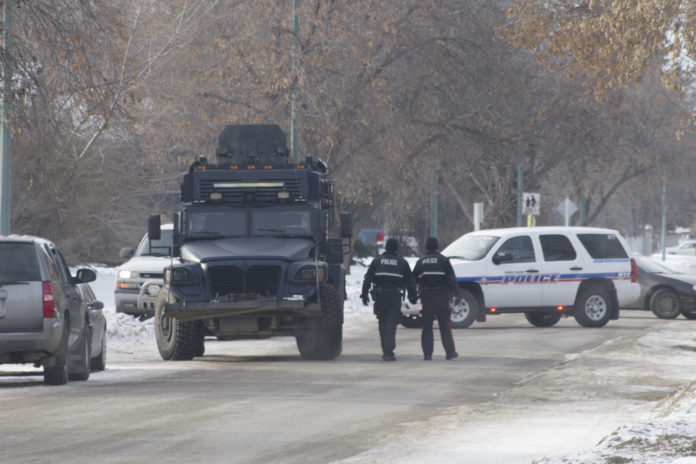
Gangs, drugs, firearms and alcohol are all major challenges facing Prince Albert, but it’s the last two that are major causes for concern.
That’s according to Prince Albert Police Chief Jon Bergen, who took time to address some of the issues police are dealing with during a short speech to the Prince Albert Rotary Club on Monday.
Bergen said the Prince Albert Police Service has 102 sworn officers, and unusually high number given the city’s population of around 36,000. However, he said the types of crime they’re seeing make it necessary.
That includes alcohol, which accounts for roughly half of all arrests in the city by itself, and firearms, which are starting to become more and more of a problem throughout the city.
“If you look back at 2009 to 2015, firearms weren’t a problem,” Bergen explained. “I didn’t go to a shooting here until about 2010, and I didn’t just get lucky. We didn’t have them.”
Bergen added that other types of violent crime, like stabbings, have been problems for years. However it wasn’t until 2016 that police started seeing a rise in the number of firearms.
In 2010, police seized 21 firearms. In 2011, they seized 38. By 2016, they were seizing more than 100 firearms a year, peaking with 137 in 2017. That number dropped slightly in 2018, when police seized 94 firearms, however that trend doesn’t look like it will hold for this year.
As of Feb. 15, 2019, police have seized 27 firearms in the city, roughly double what they’d seized by the same time last year, and well above the six they seized by Feb. 15, 2015.
“For years we had stabbing deaths an all kinds of violence like that, but firearm offences spiked in 2016,” Bergen said. “It hasn’t really slowed down much, so we are dealing with more guns.”
Bergen added that many of those guns have been legally purchased, then modified by illegal means, such as by sawing off parts of the barrel. Most of them also come from gang members, who tend to carry them for self-protection as much as to cause trouble.
Bergen said city policing are working closely with the provincial government to crack down on gang violence.
“We’re addressing it as an entire organization and we’re looking at how we’re deploying our staff to make sure that we’ve got them working in the right direction,” Bergen said in response to an audience question about gangs in the city.
While gangs and guns are major problems, alcohol is by far the biggest when it comes to consuming police resources.
Typically, Prince Albert police make between 6,000 and 6,500 arrests per year, which Bergen says is “very high” for a city of this size (police in Saskatoon and Regina typically make between 8,000 and 9,000 arrests annually).
In Prince Albert, Bergen estimates that more than 3,000 arrests are simply for being drunk in public.
Often we say guns, gangs and drugs are big problems for P.A.,” he explained. “Alcohol’s a big problem for P.A. because when you look at how we’re responding to alcohol alone, we haven’t figured that one out, but yet we’ve got to focus on these other ones because they’re coming up just as strong.”
If there’s one area that hasn’t been a major problem it’s the legalization of marijuana. Bergen said it has affected the department, forcing them to send members to Regina and the United States for training. However, he’s confident the service can handle the current problem.
“What we’ve seen so far is really not even much of a blip from that change,” Bergen explained. “We’ve prepared our staff. We have two outlets (that sell cannabis) in Prince Albert, they were late opening, and we do have staff who are trained to identify drug impaired drivers, but drug impaired drivers weren’t a problem that just started because of the Cannabis Act. It was a problem we were dealing with before this change.”

